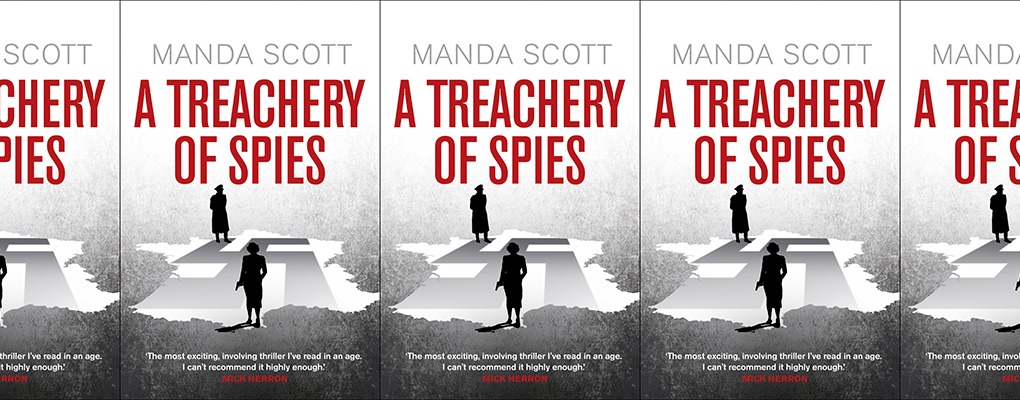Books
Introducing Capitaine Ines Picaut
When I started writing A Treachery of Spies, I wanted to see – actually, more, I wanted to feel – what would drive a woman to kill.
I’d read a book called Shoot the Women First which was the alleged directive to the German Special Forces in post-war Germany who were facing the first real terrorist groups of the modern era: the Bader-Meinhof group and the Red Army Faction. The order was based on the belief that when a woman has crossed the line to the point where she’s prepared to kill, she’s exceptionally dangerous.
We could spend an age discussing the rampant misogyny of this theory, but I was a lot more interested in the practical applications. Whatever you think of their politics, were these terrorist women, the warriors of our modern age? And if so, what is it that they carry about them that changes their world? And now, a new question: what happens when we bring that undefinable something into the present day and harness it for the forces of decency and compassion?
And so I came to write A Treachery of Spies, which lifts some of the larger stones that our more recent history has left unturned (when did our moral compass flip? And what has it led to?), I needed to find a woman of the twenty-first century who carried the essence of the warrior in a way that felt real. Who do we become if we walk daily the fine line between life and death? What does it do to us? How does it mould who we are?
When I started writing A Treachery of Spies, I wanted to see – actually, more, I wanted to feel – what would drive a woman to kill.
Ines Picaut is my answer. She evolved, as all good characters do, from a collection of sources. Physically, she is modelled on Laure, the police captain from the French police thriller show Engranages which we know as Spiral.
She’s not quite as elfin, but still a grunge-waif prone to wearing black leather jackets. Underneath, she’s harder than Laure, I think, and the tensions that drive her are more complex. She has been wounded in action, and the visible scars leave her vulnerable in ways she is not comfortable with, while her shield of self-deprecating irony is never quite as effective as she would like it to be.
The invisible scars, inevitably, are the ones that trip her up, but she’s self-aware enough to see most of them coming in time to take evasive action. This is what sets warriors apart from cannon-fodder: they can see their own mistakes before they make them. Mostly.
What Picaut can’t avoid is her nation’s history. Like Laure, she’s French and the history of occupation during the war, and the ambivalence this has left behind; the old, undead feuds, and the naked hatred that runs through to the present day – these are the core of the book. Picaut has to navigate herself before she can navigate the shifting sands of her world as the past reaches forward to assassinate the present: who can you trust when nobody is quite who they pretend?
A Treachery of Spies is by far the most intricate novel I have ever written, but also easily the most satisfying. Finding Ines, and teasing out her story has been an exploration into the world as it is – and as it could be if we continue the slide into a barbarism that we thought safely behind us.
What’s the best espionage thriller you’ve read? Let us know in the comments below!
1 Comment
Join the discussion
Please note: Moderation is enabled and may delay your comment being posted. There is no need to resubmit your comment. By posting a comment you are agreeing to the website Terms of Use.



I’ve read the book and really enjoyed it. Even post reading it, this extra background was really interesting, thanks Manda.